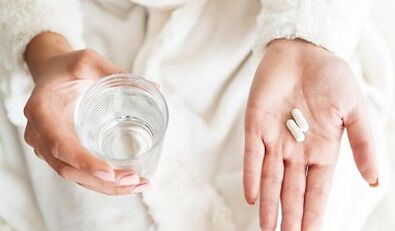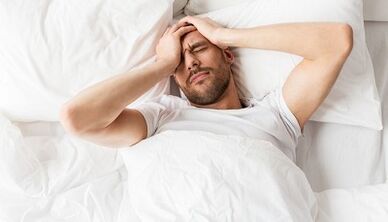When taking drugs, people often face a problem: how long after antibiotics you can drink alcohol.It is difficult to say how long it has completely removed the medications from the body - no doctor will surely answer this question, because the action of all antibiotics is different.Moreover, there are diseases when the patient is prescribed not only antibiotics, but also a special diet.In this case, alcohol is prohibited.
About drugs

Antibiotics - products of the lives of microorganisms (these are the most common mushrooms and their synthetic derivatives).They are used to treat infections caused by bacteria.Everyone is produced in both capsules and tablets, because they are very handsome.
However, there are general reception rules for any antibiotics:
- Each drug can only prescribe a doctor, depending on the severity of the disease and the characteristics of the patient's body.
- Antibiotics are not used as a treatment for viral diseases.
- The result of an action of any antibiotics is considered in the first three days - if the medicine helps, no processing is not recommended.If the symptoms continue to progress, then you should be re-contacted by a doctor.
- The course of treatment does not stop if the nausea or unpleasant taste in the mouth is manifested.
- You cannot control the dose that the doctor is prescribed - too small dose antibiotics dangerous for the human body.
Important!It must be remembered that self-identification is always dangerous to the body.
The time that is necessary to remove antibiotics from the body depends on many factors.Each of the medicines has its own characteristics, but most are excreted from the body with urine through the kidneys or (if the dose is small) in the shape of bile through the hoses.A very small dose can be displayed in other ways: through sweat, loot, salivary glands or with a sputum.
If you need to find out ways to remove a specific drug, you must read the instructions.For any antibiotic, these information is indicated in the pharmacokinetics items.

Some medications can be excreted after 6-12 hours, but there are those who are late in the body for 1-2 weeks.
In addition, it must be borne in mind that muscle tissue quickly removes antibiotics, after being fat and only then the bone.
After the standards and, most importantly, the successful flow of antibiotics, alcohol cannot be drunk for 3-5 days.
But there are exceptions in the form of chronic diseases when the course of treatment is done multiple times.In this case, alcohol restraint is worth 2-4 weeks.
Alcohol during treatment
If the person is prescribed, the flow of antibiotics, then it is strictly forbidden to drink any alcohol.Doctors note that more effective treatment in those people who do not drink alcohol or during illness or after.
- The most important reasons are the interaction of alcohol molecules and antibiotics.In this situation toxic substance can be released.
- On the background of alcohol, an antibiotic becomes less efficient or useless at all.
- Hepatotoxic alcoholic antibiotics (affect liver).If you use them at the same time, the load on the liver boosts.
When you can drink alcohol after taking antibiotics and how best to ask your doctor to avoid unpleasant consequences.
In any case, there is a small group of antibiotics with which alcohol is allowed.They include:
- antifungal;
- penicillins;
- Heliomsin;
- Ansomycines;
- Glycopeptides.
The speed of removing funds
A person makes the toxic work of antibiotics after treatment for a long time.
As already mentioned, most are shown in urine.Each remedy is absorbed and surrounded in the body of different times.
If you have such a chance, you better not take alcohol.
The immunity of fragile after illness is not always ready for the toxic effects of ethyl alcohol.
What affects her
The main factor that affects drug excretion rate is its chemical composition.But the road is important and the path of introduction of antibiotics.The trail parenter (bypassing digestive tract) operates more efficiently and faster (withdrawn from 16-24 hours), but the specialist should inject.At home, the entrance path (through the gastrointestinal tract) - tablets and capsules can be taken alone at home.
The time required to remove antibiotics from the body may depend on the age - in people in advanced age, it happens more slowly.Also, excretion can inhibit the work of kidney, liver or genitourin system.Toxins are excreted faster with a heavy drinking liquid or fermented dairy products.
Consequences of joint reception

Often, without hesitation, without hesitation, drink alcohol with antibiotics and claim that the note does not indicate how much time you cannot drink alcohol and is there is a ban on its entry in general.But it should be borne in mind that pharmaceutical companies produce antibiotics for treatment, not to combine with alcohol, so they will not check such reactions.
No doctor can predict the exact reaction in your body and how it affects the course of the disease.The use of alcohol during antibiotics can lead to serious consequences.Consider some of them:
- Breach of liver function.In this case, the liver may not remove harmful products, but absorb all toxins in their cells.
- Severe allergic reaction (Quinke's edema, anaphylactic shock).
- There may be a body intoxication (nausea, vomiting, headaches, cramps, abdominal pain).
- Heart problems may occur, a move or myocardial infarction will develop.
- Increased or reduced blood pressure (blood pressure).
It must be borne in mind that with a combination of alcohol drugs, ethanol is not divided.Therefore, the consequences: most harmful substances of alcoholic beverages will accumulate in a person's bodies and tissues.
The most dangerous "cocktails"
Many antibiotics are not compatible with any alcohol.For example:
- Fruiteitoloni, alcohol mixing, behaves negatively on the nervous system and can bring in a coma.
- Tetraciklika are delayed for a long time in the body, they can destroy some liver cells and that is why alcohol intake is possible in three days.
- Aminoglycosides can be the cause of complications on the ear and kidneys (alcohol is possible after 2 weeks).
- The nervous system and liver were damaged by Lincosamides (alcohol is possible after 4 days).
- Macrolides can cause the liver cirrhosis (alcohol be possible after 4 days).
All medications against -tb cause hepatitis, in this case, each alcohol is banned.
First aid
The first action is an emergency call.Determine how much time has passed from intoxication and be sure to save the remains of substances caused by poisoning - this will help the doctor.
If the victim is aware, she needs to drink a large amount of water, and then causes vomiting to the irritation of the back wall of Larinks.After the stomach washing, you must give the victim any sorbent (for example, an activated carbon).
Put the patient in a suitable horizontal position, follow the breathing and pulse.Wait for an emergency arrival.
Score
Antibiotics are very serious medicine.A person who takes antibiotics must clearly follow the instructions that are attached to these medicines.Not all antibiotics can combine with alcohol, at best, the medicine will simply not help, and in the worst case does not cause death.























